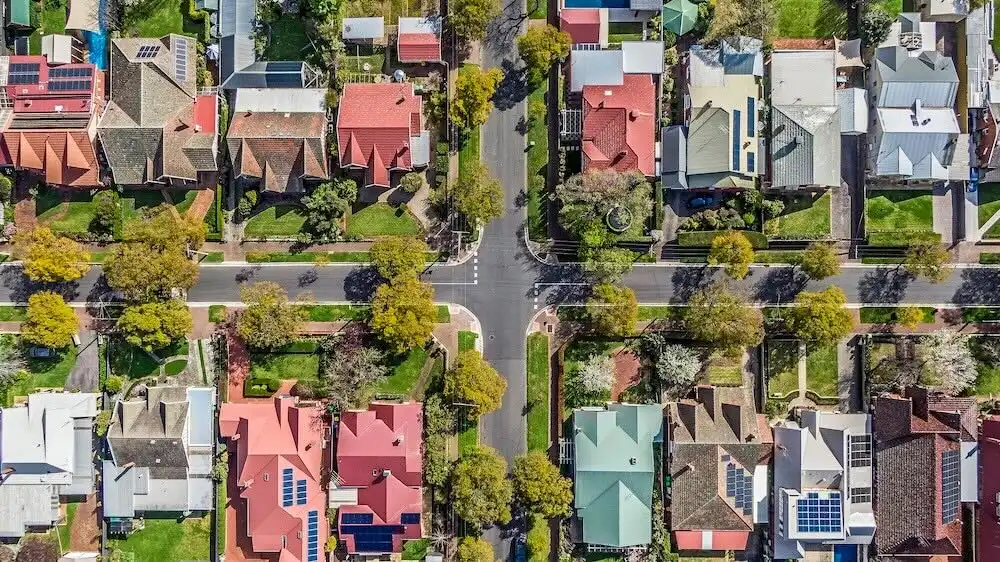What's next for interest rates and property prices?
The most aggressive rate-tightening cycle in Australia's history has been the key driver of the property market downturn, but change could be just around the corner.
It looks like we're fast approaching the peak of interest rates. So what does that mean for property prices and market activity moving forward?
We spoke to international property buyer and all-around Australian real estate expert Pete Wargent to find out what's on the horizon.

Get a free property value estimate
Find out how much your property is worth in today’s market.
When will interest rates peak?
From May 2022, when the cash rate was set at a record-low 0.1 per cent, to March 2023 where it currently sits at 3.60 per cent, it's been a real whirlwind journey for the property market.
Until March rolled around, there was a strong sense that interest rates were going to keep rising — up to 4.10 per cent according to three of the four big banks.
This month has brought a change in tone, though. Preliminary figures show inflation is now easing off, wages don't seem to be spiralling upwards, and the RBA's messaging has softened considerably.
"I think if we get a very strong employment report then the RBA will hike in April, but their language in recent weeks has been a lot more doveish," Mr Wargent said.
He noted that financial markets are now pointing to a pause in rate hikes for April with the possibility that we may have already hit the peak with the latest March increase.
"It seems we're approaching the peak. Either no more hikes or one more hike is the current thinking, anyway."
Mr Wargent pointed out that the situation is especially fluid at the moment, and by the time April rolls around expectations could have shifted once again.
"But we haven't seen a cycle like this ever — from 0.1 per cent to 3.6 per cent in a year. That's a lot of hikes very quickly, and the RBA will probably be taking stock very soon."
How could the property market change after rate hikes stop?
Whether the cash rate holds at its current 3.60 per cent level or notches one or two rungs higher, current signs point to the fact that the tightening cycle is coming to a conclusion.
CoreLogic reported that Australian property prices held relatively flat in February, posing the question: is a market recovery already underway?
Mr Wargent suggested that it's probably not that simple, and the February figures could represent a "false dawn" as there are still delayed impacts to be felt from the rate hiking cycle.

February's improvement may be largely attributed to a severe shortage of available stock on the market which has concentrated buyer competition and driven auction clearance rates up.
"At the moment, listings are about 25 per cent lower than you would expect to see for this time of year," he explained.
Moving forward, it's a question of if and when those listing numbers increase and how cautious buyers respond.
"There's potential that once the expectations around interest rates start to ease… that some confidence could come back."
Could prices begin to rise again in 2023?
The big four banks have all taken a relatively pessimistic view of what's in store for property prices this year, forecasting national declines of between -3 and -11 per cent.
SQM Research offered a different perspective in their latest Housing Boom and Bust Report, proposing a base case scenario where prices increase between +3 and +7 per cent in 2023.
It can be hard to know what to make of the broad spectrum of predictions, but Mr Wargent said that a V-shaped recovery — which would mean prices rebound just as quickly as they declined — looks unlikely.
"I think that, even if the market bottoms out in the next few months, it's not going to be a rapid rebound. We could grind along for some time."
His expectation is that national home prices will end the year lower than where they started.
"What would cause the market to bounce back would be the RBA pausing and APRA releasing the lending assessment buffer that they put in place during the pandemic. If they make lending a bit easier than it has been that could stimulate some confidence," he said.
There are always markets within markets, though, and there will be a range of different outcomes for each suburb, city, region and state, so it's vital to pay close attention to your local market.
How should sellers navigate what's up ahead?
If the wider downturn is set to continue, what are the things sellers need to consider — and what are the possible upsides in this market?
Having noted the well-below-average listing levels, Mr Wargent said that "Potentially at the moment you're selling with a bit less competition than might normally be the case."
"If you can get a property listed and it's well presented and so on, there is potential to get a good result now."
Confidence may improve as the year goes on, but it's also likely there will be more properties coming onto the market, "so those are the things that sellers would need to weigh up."
He noted that A-grade properties are still attracting a lot of competition and fetching strong results, while "compromised" properties are taking longer to sell.
"Generally speaking there's not been much appetite for people to take on major renovations because it's been very hard to get trades and materials. Sellers who have done the bulk of the work and it's a turnkey finished article, that tends to be an easier sell than a project that needs lots of work."
Mr Wargent also noted that markets like this are prime opportunities for upsizers.
"You'll pay less stamp duty and the gap between your current home and the next one should be lower in theory. If you're an upgrader, you'd probably want to take a look at it."
For sellers hoping that prices suddenly bounce back, trying to time the market instead of selling when personal circumstances align may be a risky move in 2023.
"This feels more like a process than an event," Mr Wargent said. "We've got a slowdown in the economy, we've still got the impact of all the rate hikes to flow through since it operates with a lag. It feels like we've still got a way to go yet."






